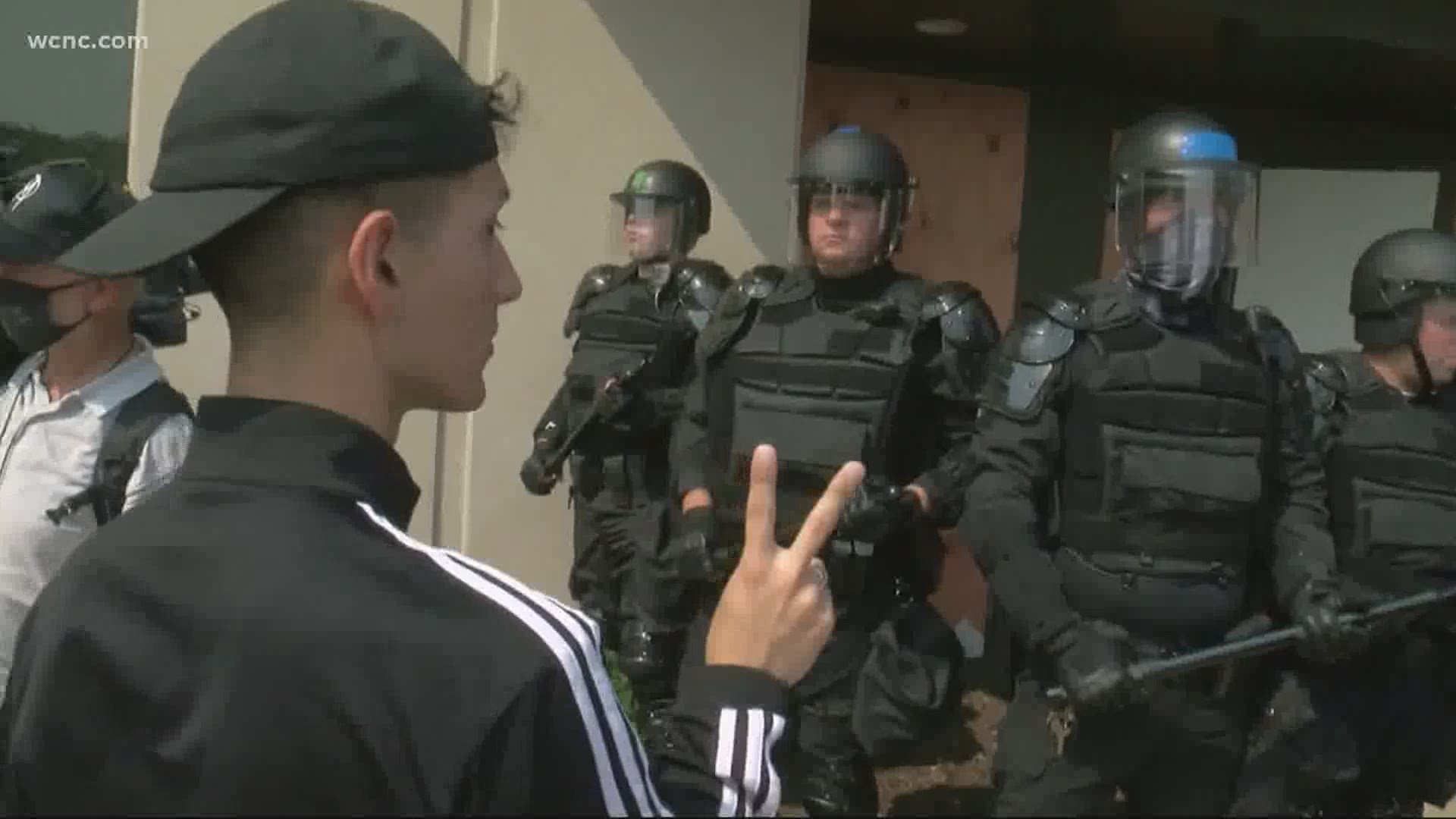CHARLOTTE, N.C. — As protests over racial injustice and excessive force continue across the country, WCNC sat down with Charlotte-Mecklenburg Police Chief Johnny Jennings to talk about how the department is handling the increased scrutiny.
Chief Jennings said he feels whenever a controversial police encounter happens in the country, it tends to shine a negative light on police departments across the board, which he said does get frustrating.
"It's frustrating to us just as much as it is to the community when you see social injustice and see police brutality," Jennings said.
But for police departments, he said it tends to have a ripple effect.
"As many steps as we try to take to move forward and building those relationships, something else can happen across the country and it pushes us backward," Jennings said.
Civil unrest and protests have continued almost daily across the country, notably starting with George Floyd's death.
Most recently, protesters have taken to the streets across the country after Jacob Blake was shot seven times in the back by a Kenosha, Wisconsin police officer during an encounter.
Charlotte is no stranger to police-related scrutiny, even this past summer. At the end of August, CMPD released body camera footage from June 2 protests where protesters said they were trapped and tear-gassed.
Chief Jennings said it's not the standard they hold themselves to at CMPD. The department took specific criticism for videos in which officers spoke lightly about using tear gas on protesters.
"Wave goodbye," an officer is heard saying in one video. "They're all about to be gassed."
RELATED: 'Wave goodbye. They're all about to be gassed.' | CMPD releases bodycam footage from protests
"When you hear these comments of almost ... almost enjoyment out of what's getting ready to happen — it's something we felt needed to be acted on appropriately and swiftly and we did that," Jennings said.
To help with accountability, the North Carolina Association of Chiefs of Police released new reform recommendations that put the preservation of life during use of force incidents, community trust, and racial equity at the forefront.
"We are trying to build those relationships and hopefully make some progress," Jennings said.


